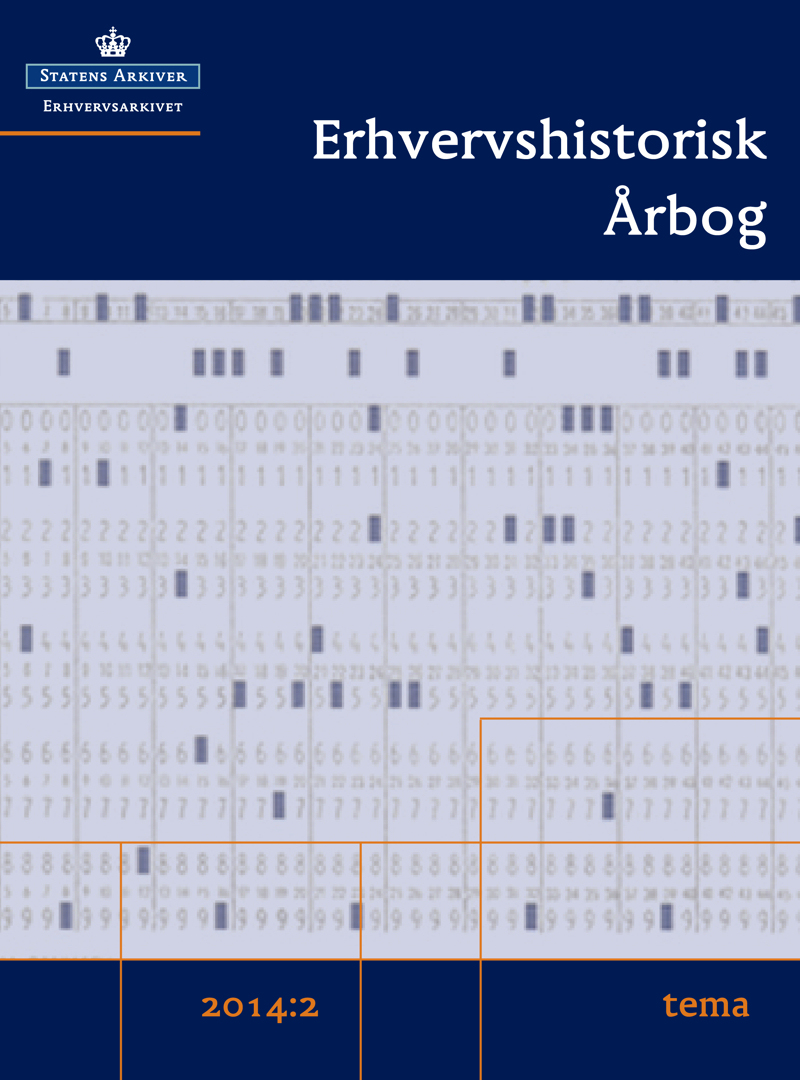Erhvervsarkiver i et stadsarkiv – Silkeborg Arkivs erfaringer med indsamling af virksomhedsarkiver
Abstract
Silkeborg Arkiv indsamler, som stadsarkiv/lokalhistorisk arkiv, også virksomhedsarkiver fra lokalområdet. I denne artikel vil vi forsøge at give et indblik i arbejdet med arkiverne og hvilke problemstillinger, som kendetegner dette arbejde.
Groft sagt opdeler vi virksomhedsarkiverne i fire kategorier – 1) virksomheder med et lokalt definerende virke, 2) større virksomheder som ikke har nogen særlig lokal identitet, men som ”bare ligger her” 3) mindre lokale virksomheder hvis virke ikke er alment kendt, 4) kooperative virksomheder – der i en periode var meget karakteristiske for Silkeborgs erhvervsliv. I artiklen uddyber vi, hvilke problemstillinger, der gør sig gældende ved indsamling af arkiver fra de forskellige typer virksomheder sammen med eksempler på disse virksomheder. Det gælder eksempelvis spørgsmål om, hvor systematisk, vi kan indsamle, har virksomhederne forståelse for at de bør aflevere, og får vi overhovedet de rigtige materialer. Derudover kommer vi også ind på aktuelle/fremtidige problemstillinger omkring indsamling og håndtering af digitale arkivalier.
Spørgsmålet om hvorvidt vi indsamler det rigtige diskuteres også i lyset af, hvilke typer erhvervsarkivalier, der efterspørges på arkivets læsesal og vi spørger om, vi overhovedet indsamler det rigtige i forhold den brugerprofil, som er karakteristisk for vores læsesal som stadsarkiv/lokalhistorisk arkiv.
---
Silkeborg City Archives are both municipal and local historical archives – and in the capacity of the latter also taking care of documenting the business history of the area. In this article we describe different types of challenges in this work. We defined four categories for our local businesses, each one with different issues concerning the collection of their archives. 1) Locally defining businesses – meaning businesses that played a role in shaping the local history and identity. – In the case of Silkeborg it is companies like the paper mill – Silkeborg Papirfabrik and the steamboat company – Hjejleselskabet. This kind of business is both by themselves and the public comprehended as locally important and with a general awareness of their roll. 2) Larger companies who have no qualitative connection to the local society – and who do not see themselves as local or with a local attachment. 3) Smaller businesses rooted in the local society, but not generally known to the public and maybe not themselves aware of any local historical importance. 4) Cooperative businesses – a type of business that earlier was characteristic for the Silkeborg-area.
In the article we discuss the issues of collecting archival material from the different types of businesses. Broadly speaking, we find that businesses in category 1 are the easiest to collect. Both the public and business are aware of its importance and will be likely to be in favor of donating their archives. Businesses in category 2 are more difficult to work with because they often tend not to be aware that they can contribute to the local history. They also tend not to trust that the archival institution can handle matters as secrecy – often this type of company only hands over incomplete material. In Category 3 we find smaller businesses like craftsmen, workshops and local shops and it often happens that this type of business close without anybody with connection to the local historical environment knows about it. This means that a lot of the most typical material will never be represented in the local archives collection – at least not in its entirety. We very often see that years after the closing of a small business, relatives of the owner will show up with a couple of nice old books and the driver’s license of the owner. Category 4 is characterized by companies that closed 25-35 years ago, if they were not taken over or changed into other types of companies. If they have not already been handed in it can be relatively difficult to trace where their archives have ended up.
This article also discusses the issues of the kind of material that are gathered by the archival institution compared to what is typically asked for in the reading room. Since we are a local archive, much of the demand is for material for genealogy or local history. Accounting records are rarely in demand.
In addition to this the article also addresses the question of collecting digital archives. Both in respect to what is offered us, which medias it should be extracted from and the task of keeping the information safe and still be able to give access to it.
Downloads
Published
How to Cite
Issue
Section
License
Ophavsret til artikler publiceret i Erhvervshistorisk Årbog er fastlagt i henhold til den modelaftale, License to publish, som UBVA har offentliggjort under rubrikken Ophavsret og forskningspublicering. Indsendelse af en artikel til Erhvervshistorisk Årbog indebærer en accept af dette. Modelaftalen kan findes ved hjælp af dette link: http://www.ubva.dk/Forside





